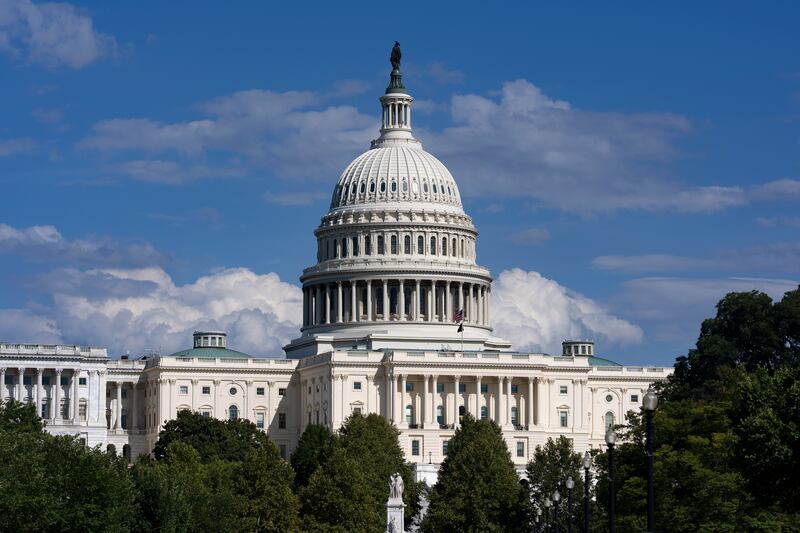WASHINGTON — Republicans advanced a number of bills seeking to overhaul the criminal justice system in Washington, D.C., marking the biggest threat yet to the city’s self-governance as President Donald Trump warns local officials he could extend federal control.
The House passed four separate bills making substantial changes to the city’s current laws, with each passing mostly along party lines with only a few dozen Democrats joining Republicans in advancing the measures despite objections from Del. Eleanor Norton, the nonvoting delegate who represents D.C. and caucuses with the minority party.
“These outrageous anti-D.C. home rule bills are being introduced and passed by members of Congress who do not represent D.C., who are not accountable to D.C. residents, and have no mandate to substitute their own policy judgments for laws that were democratically enacted by the District,” Norton said in a statement this week.
All four will now head to the Senate for consideration.
City’s power over criminal laws limited
Lawmakers voted 240-179 to pass the D.C. Criminal Reforms to Immediately Make Everyone Safe, or D.C. CRIMES Act, which would limit the city council’s authority to make changes to its own criminal sentencing laws and eliminate local officials’ ability to “enact any act, resolution, or rule to change any criminal liability sentence.”
The bill got the most Democratic support of the four up for consideration, with 31 breaking with party leadership to advance the measure.
“If you commit crimes as an 18-24 y/o ADULT, you should be sentenced as an ADULT,” Rep. Byron Donalds, R-Fla., who sponsored the bill, said in a post on X. “But in DC, 18-24 y/o criminals can be sentenced as JUVENILES — THIS IS WRONG. Last night, my bill, HR 4922 — ‘DC CRIMES Act’ PASSED 240-179 to fix this mess.”
Lowering age for juveniles to be charged as adults
Republicans also passed a bill dealing with how criminals are charged within the district, lowering the age at which a minor can be tried as an adult for certain charges to 14 years old, down from the current 16-year-old benchmark.
That bill highlights an ongoing challenge for D.C. officials, who have been working for months to crack down on rising rates of youth crime. Since the beginning of 2025, juveniles have made up more than 50% of arrests related to carjacking, according to D.C. police. A majority of those arrests are made up of teens who are 15 and 16 years old.
The proposal got less support from Democrats, with only eight crossing the aisle to join Republicans in advancing the measure.
Police could engage in car chases
Republicans also approved a proposal to remove restrictions on when it’s acceptable for police officers to engage in car chases and even “generally requires such pursuits in the absence of other means of apprehension.”
Current law bars officers from engaging in such chases unless the suspect was involved in a violent crime or poses an immediate and serious threat to another person. The pursuit must also be “necessary to prevent that threat” and not pose any risk of death or serious injury.
The newly passed bill would repeal those restrictions and instead require car chases when suspects try to escape in a vehicle unless the officer believes the effort “would be futile,” the chase poses “unacceptable risk of harm,” or there are more effective measures to take.
It would also require the Justice Department to submit a report to Congress of the costs and benefits of technology to alert the public of an active police chase in their “immediate vicinity.”
Twenty-nine Democrats supported the measure.
Trump has power over choosing top judges
The final bill passed by the House would eliminate the D.C. Judicial Nomination Commission, which is responsible for recommending nominees to the president for the D.C. Superior Court and Court of Appeals. Those judges must then be confirmed by the Senate.
By eliminating the commission, it would pave the way for Trump to unilaterally appoint chief judges.
This was the most partisan of the four bills, with no Democrats joining Republicans in advancing the measure.


